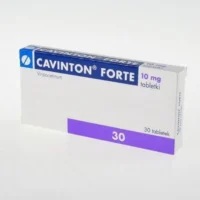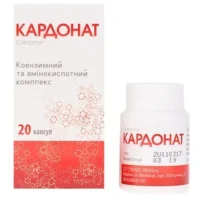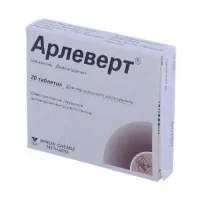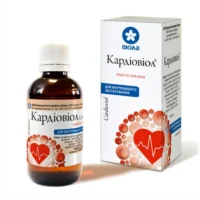Description
Sermion (Nicergoline) Coated Tablets 5 mg. №30
Ingredients
- Active ingredient: Nicergoline 5 mg.
- Other ingredients: lactose monohydrate, maize starch, povidone, talc, magnesium stearate, hypromellose, macrogol 6000, titanium dioxide (E171), and indigo carmine aluminum lake (E132).
Dosage
Recommended dosage: The usual dose is one tablet three times a day, preferably with meals.
Indications
Sermion tablets are indicated for:
- Improvement of cognitive function in patients with chronic cerebral vascular disease.
- Symptomatic treatment of cognitive function disorders in the elderly.
Contraindications
Do not use Sermion tablets if:
- You are allergic to nicergoline or any other ingredients in the product.
- You have severe hepatic impairment.
- You are pregnant or breastfeeding.
Directions
How to take Sermion tablets:
- Swallow the tablet whole with a glass of water.
- Do not crush or chew the tablet.
- Follow the dosage instructions provided by your healthcare provider.
Scientific Evidence
Nicergoline has shown promising results in improving cognitive function and cerebral blood flow. Studies have demonstrated its efficacy in enhancing memory, attention, and overall cognitive performance in patients with cognitive impairment. Nicergoline’s vasodilatory effects contribute to increased cerebral blood flow, which may help in the management of cerebrovascular disorders.
Additional Information
Precautions:
- Inform your doctor about any existing medical conditions or medications before starting Sermion.
- Monitor liver function tests during treatment.
- Discontinue use if you experience any allergic reactions or severe side effects.
Research on nicergoline’s pharmacological effects has highlighted its role in neuroprotection and cognitive enhancement. By modulating neurotransmitter levels and improving cerebral circulation, nicergoline offers a multifaceted approach to cognitive function improvement. Clinical trials have shown its potential in enhancing cognitive performance, especially in elderly patients with cognitive decline.
Compared to other cognitive enhancers, nicergoline stands out for its favorable safety profile and tolerability. Its unique mechanism of action sets it apart as a promising option for individuals seeking cognitive support without significant side effects.





